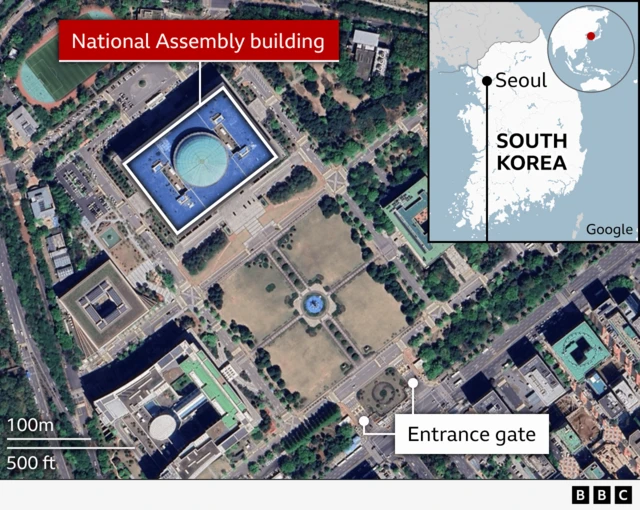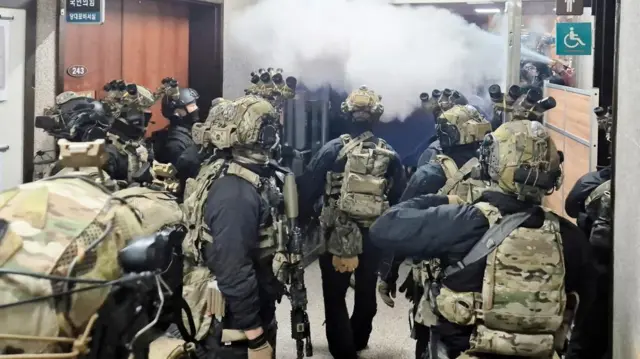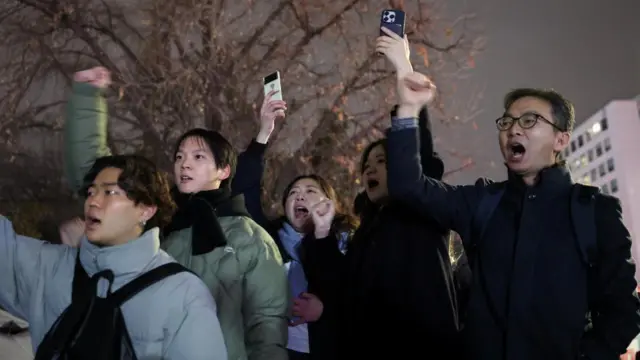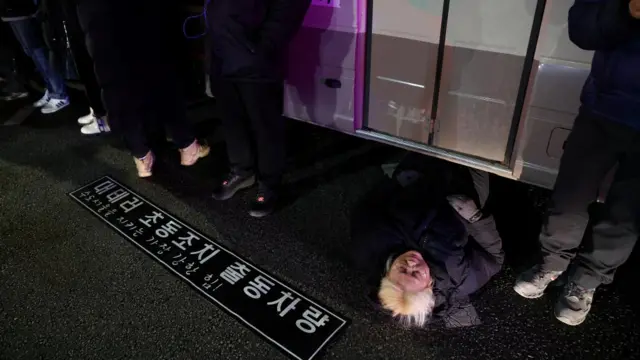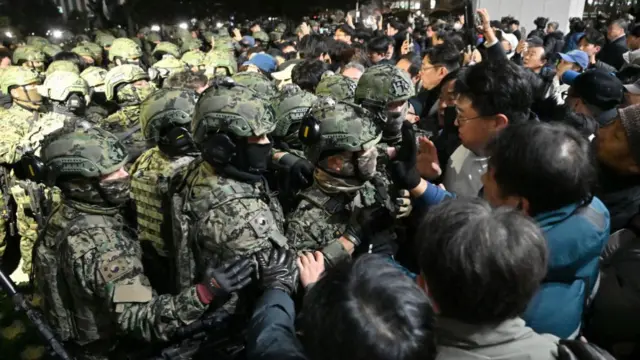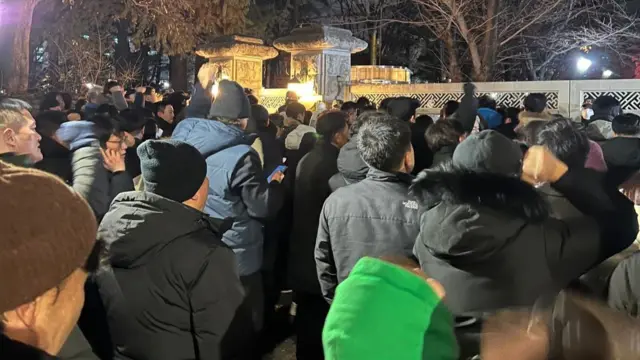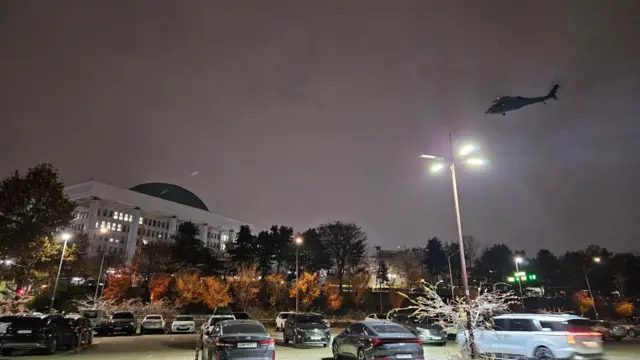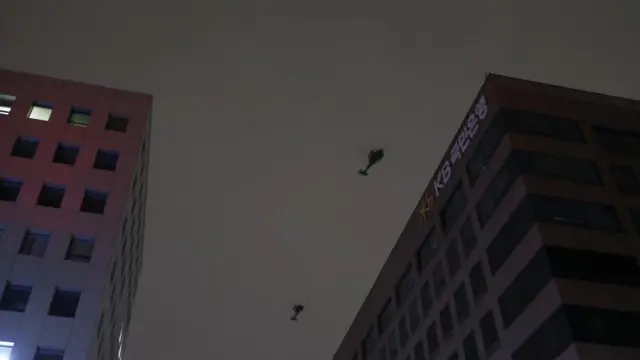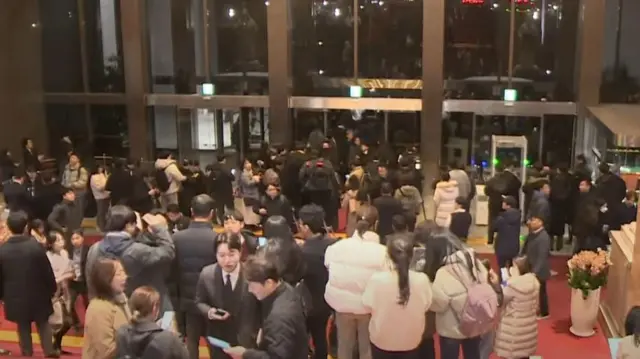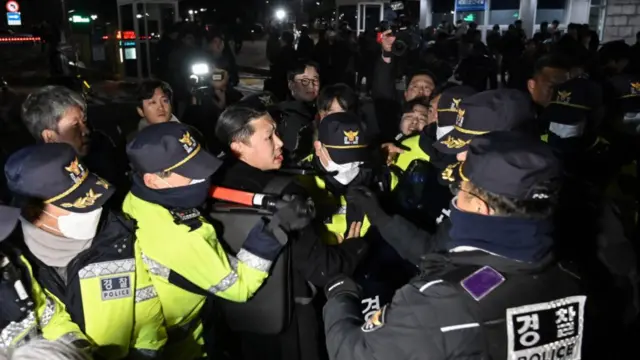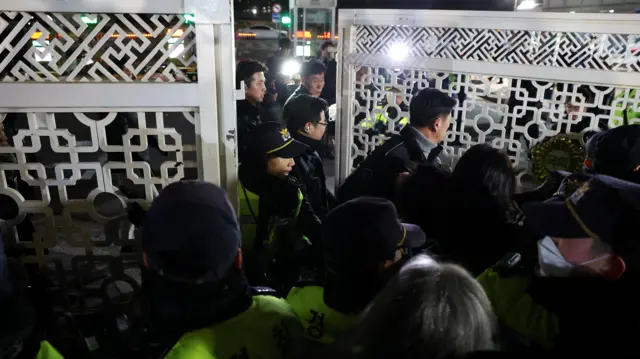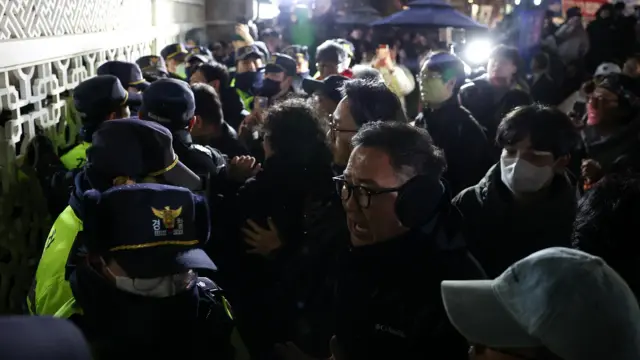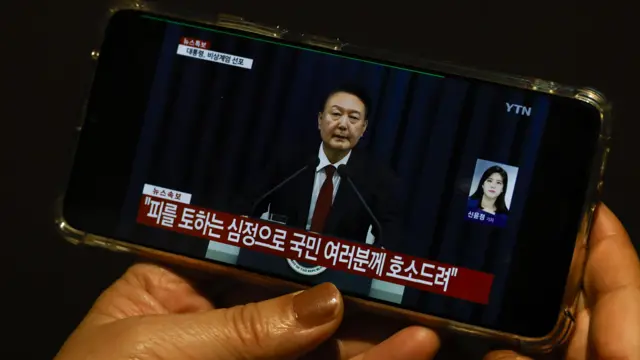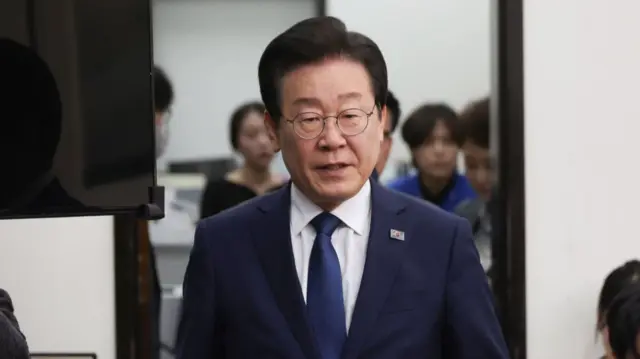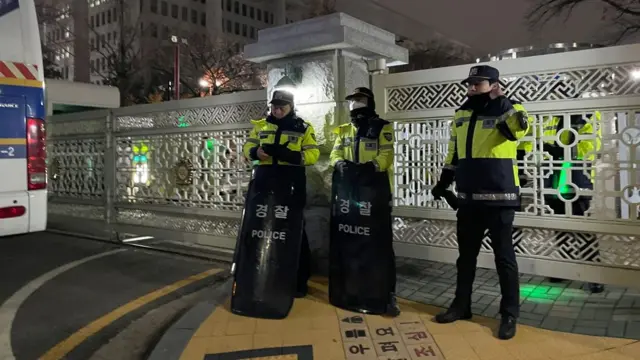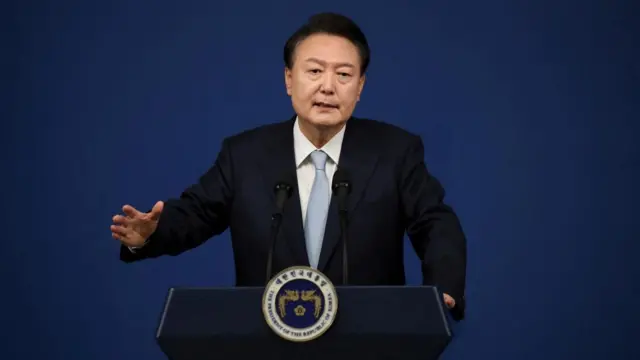Opposition party speaker had to climb fence to access parliamentpublished at 16:41 GMT 3 December 2024
Jake Kwon
Reporting from Seoul
Representative Lee Seong-yoon, of South Korea's main opposition party, spoke to the BBC a short while ago from the main Assembly Hall, as he was waiting for the vote to start.
He said he had to climb over a 1.5m (4.9ft) tall fence to get into the assembly because police blocked him, even with identification that he was a lawmaker.
In case you missed it: lawmakers have voted to block the president's move to declare martial law.
